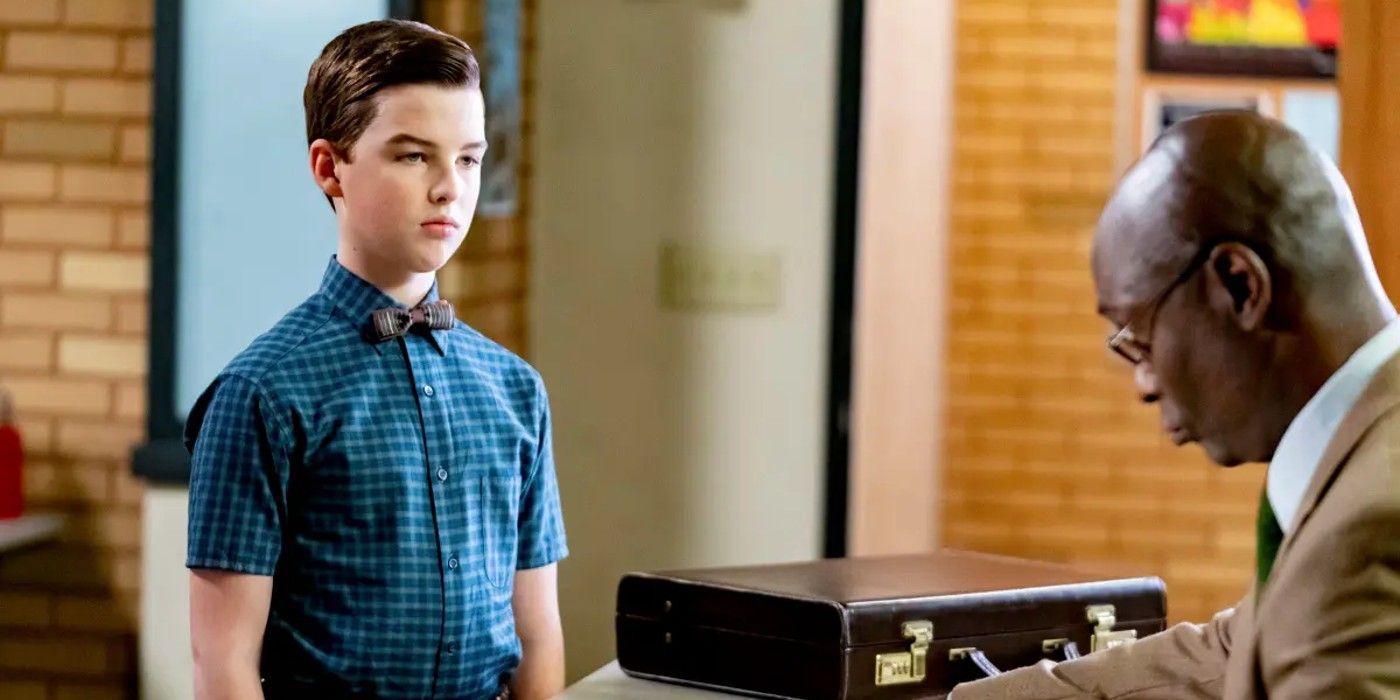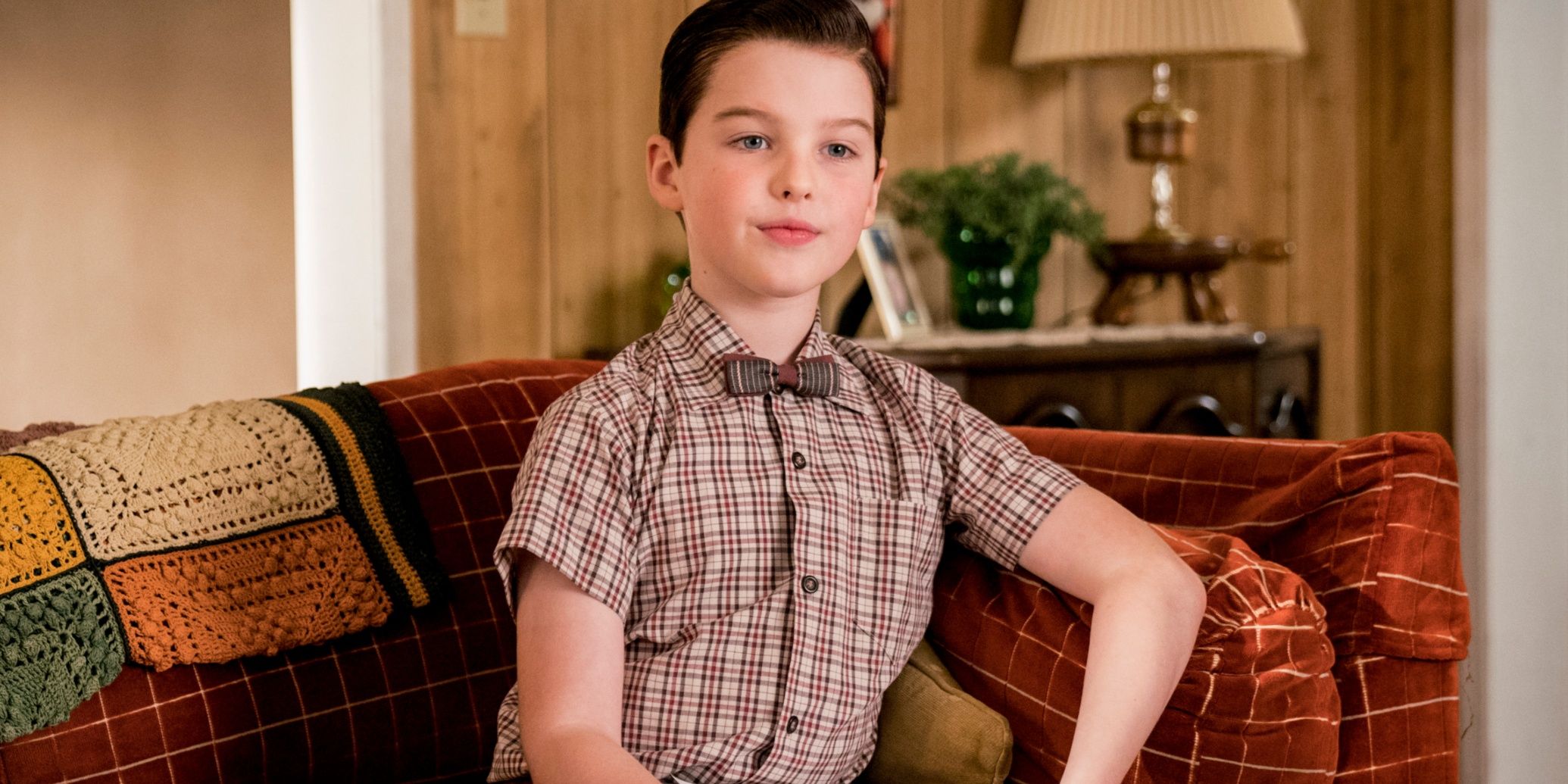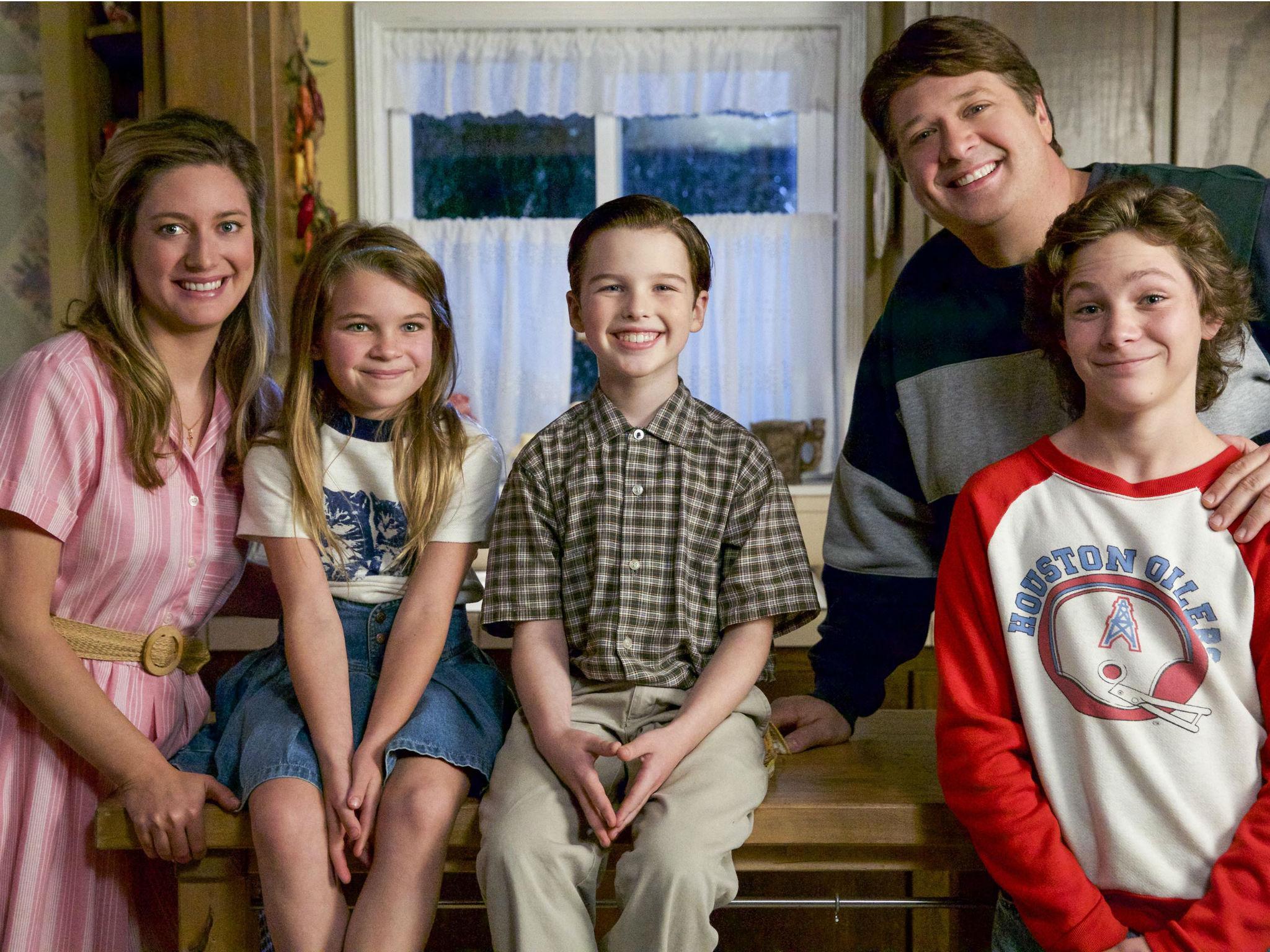Can a television show truly capture the essence of a specific era, weaving its narrative through the cultural tapestry of the time? "Young Sheldon" attempted to do just that, and in its exploration of the late 1980s and early 1990s, it presented a compelling, if sometimes inconsistent, portrait of a bygone era.
The series, a prequel to the immensely popular "The Big Bang Theory," follows the childhood and adolescence of Sheldon Cooper, a highly intelligent and socially awkward child prodigy growing up in a small Texas town. While the show's primary focus is on Sheldon's academic and social development, it also provides a glimpse into the cultural and social landscape of the time, offering viewers a nostalgic journey back to a period marked by significant technological advancements, evolving social norms, and shifting political ideologies. "Young Sheldon" premiered on CBS on September 25, 2017, and its run concluded on May 16, 2024, leaving a lasting impression on its dedicated audience.
One of the key aspects of "Young Sheldon" is its deliberate placement within a specific historical context. The series kicks off in the fall of 1989, with Sheldon beginning high school at the tender age of nine. This immediately sets the stage for a story steeped in the cultural artifacts and social dynamics of the late 1980s. The show deftly incorporates elements such as the rise of personal computers, the popularity of specific music genres, and the prevalent fashion trends of the time. These details, while sometimes subtle, work together to transport viewers back to a specific moment in history.
As the series progresses, the timeline expands, allowing the show to explore the early 1990s as well. This period was a pivotal time in American history, witnessing dramatic shifts in technology, politics, and social dynamics. The evolution of the internet, the end of the Cold War, and the growing awareness of social issues all contributed to a rapidly changing world. "Young Sheldon" attempts to reflect these changes, albeit through the lens of a family navigating the challenges and triumphs of everyday life in a small Texan community.
The show's writers strategically integrate historical events and cultural references into the storyline. The characters' interactions, their conversations, and the environments they inhabit all serve to construct a believable and relatable portrayal of the era. The inclusion of specific technologies, such as the burgeoning personal computer, cassette tapes, and early video game consoles, helps to ground the narrative in a tangible historical context. The cultural references, from music and movies to fashion trends, further enhance the show's authenticity and add depth to its portrayal of the time period. However, the show's accuracy has been a subject of debate among fans and critics alike. The show often takes liberties with the details, sometimes sacrificing historical precision for comedic effect or dramatic convenience. Nevertheless, the show generally succeeds in evoking the spirit of the late 80s and early 90s, and the family's experiences resonate with viewers who remember the era fondly.
The show's younger cast members, as they have matured over the seasons, highlight the challenges of maintaining a consistent timeline. While this aging process is natural, it presents a challenge for the writers and producers to make the passing years believable, as the characters physical appearances inevitably change over the course of the series. Furthermore, there's a natural tension between the narrative of "Young Sheldon" and its parent show "The Big Bang Theory". The latter already established Sheldon's backstory, and the prequel must, therefore, accommodate these established details, even if some creative adjustments become necessary. This sometimes results in plot holes or inconsistencies, which can be frustrating for viewers who are sticklers for detail. For example, the exact timing of events is subject to some flexibility, with certain episodes appearing to compress or expand the passage of time. As the show moved through its seasons, the passage of time became increasingly compressed.
The series finale, which aired in May 2024, served as a culmination of Sheldon's journey through childhood and adolescence. As Sheldon matures, he navigates various milestones that define his character's life. The season's focus on the pivotal age of 14, a time often marked by significance, adds another layer of emotional depth to the story. During this period, the characters encountered new challenges and experiences that helped shape their futures, leaving a lasting impact on the show's legacy. The show has also provided insight into the origins of Sheldon's quirks and eccentricities, which have become so beloved by viewers of "The Big Bang Theory."
The expansion of "The Big Bang Theory" franchise with "Georgie & Mandy's First Marriage," which occurs between "Young Sheldon" and its predecessor, further impacts the established timeline. As the franchise grows, maintaining chronological accuracy proves more challenging. This expansion brings a new dimension to the universe, allowing audiences to delve deeper into the lives of the characters. The exploration of George and Mandy's marriage and the challenges they face adds to the show's dramatic appeal. While this has contributed to the show's expanded narrative, it has also created additional plot holes and raised questions about the existing continuity.
The show provides a window into how the characters' experiences mirror the larger social and cultural changes of the late 1980s and early 1990s. This reflection of the times enriches the storytelling, allowing the audience to develop a deeper appreciation for the characters journey. The incorporation of these factors also highlights the show's contribution to the broader cultural conversation. The show's ability to capture the essence of the past, the use of humor, and the exploration of family dynamics provide a satisfying viewing experience.
| Aspect | Details |
|---|---|
| Title | Young Sheldon |
| Genre | American Sitcom, Comedy |
| Creator(s) | Chuck Lorre and Steven Molaro |
| Original Run | September 25, 2017 May 16, 2024 |
| Network | CBS |
| Setting | Medford, Texas (primarily) |
| Time Period | Late 1980s and Early 1990s |
| Main Characters | Sheldon Cooper, Mary Cooper, George Cooper Sr., Missy Cooper, Georgie Cooper, Meemaw |
| Number of Seasons | 7 |
| Key Themes | Family, Growing Up, Intelligence, Social Awkwardness, Small-Town Life |
| Spin-off | Georgie & Mandy's First Marriage |
| Related Series | The Big Bang Theory |
| Notable Aspects | Prequel to The Big Bang Theory, child prodigy, nostalgic look at the 80s/90s, family dynamics, Sheldon's unique perspective. |
| Critical Reception | Generally positive, praised for its humor, heartwarming moments, and performances. |
| Available on | Paramount+ |
| Reference | IMDB |
The portrayal of the 1980s and 1990s in "Young Sheldon" also includes an exploration of the characters' relationships and development. Missy, for example, embarks on a new stage of womanhood, while George Sr. faces life changes as his children mature. These explorations highlight the complexities of familial ties, showing the family navigating significant life events together. In one episode, George and Missy's bond is emphasized as Missy undergoes the changes of womanhood. As the series progresses, these characters grapple with adolescence, familial obligations, and personal growth, adding to the show's narrative depth.
The inclusion of Sheldon's summer job at the local train museum provides an insight into the show's exploration of Sheldon's interests and his interactions with the world. His foray into working at the railway museum and the other jobs he takes are reflective of the shows broader narrative. This adds detail to Sheldon's character, highlighting his intellectual curiosity and his pursuit of knowledge. Sheldon's volunteer position as a docent (or guide) at the railway museum serves to demonstrate his social development.
The series features references to the expansion of "The Big Bang Theory" franchise with "Georgie & Mandy's First Marriage," a series which is set between "Young Sheldon" and "The Big Bang Theory." As the franchise grows, this has led to new episodes, raising questions about the show's overall coherence with the original show. Maintaining consistency becomes more challenging as the franchise expands, and the show must find creative ways to integrate new storylines and character arcs into the existing narrative. The addition of the spin-off series allows for a richer exploration of the characters' journeys and adds a new dimension to the world created by "Young Sheldon".
The depiction of Sheldon's education in the show demonstrates the show's focus on Sheldon's development and his immersion in his studies. His academic pursuit reflects his intellect and drive. Sheldon's introduction to college physics with Dr. Sturgis is an example of the show's focus on education and his intellectual development. As Sheldon advances in his academic endeavors, he makes pivotal progress in his pursuit of knowledge.
The show's focus on specific cultural and historical moments is another integral part of the narrative. In season 4, episode 6, the show features "Freshman Orientation and the Inventor of the Zipper," demonstrating the show's ability to incorporate historical details. This shows how the series attempts to create a realistic and engaging portrayal of a specific historical context. By connecting the narrative to significant historical events and details, the show reinforces its place in the viewers' understanding of the era.
The show's setting in Medford, Texas, is a cornerstone of the series' identity. The small-town setting serves as a backdrop to Sheldon's experiences and familial connections. It provides viewers with a sense of community and authenticity, anchoring the characters' stories within their surroundings. The use of real-world settings and cultural references contributes to the shows effectiveness in portraying the past.
The show's success lies in its ability to blend humor, nostalgia, and character-driven storytelling, offering a look at the past while exploring universal themes of family, growing up, and the pursuit of knowledge. However, "Young Sheldon" also faces the challenge of maintaining a consistent timeline and avoiding plot holes. The series has achieved a significant level of success through its skillful incorporation of cultural references and the exploration of relationships. Despite some inconsistencies, the show successfully depicts the 1980s and early 1990s. By incorporating elements of the past, the show has provided a memorable and entertaining experience.


